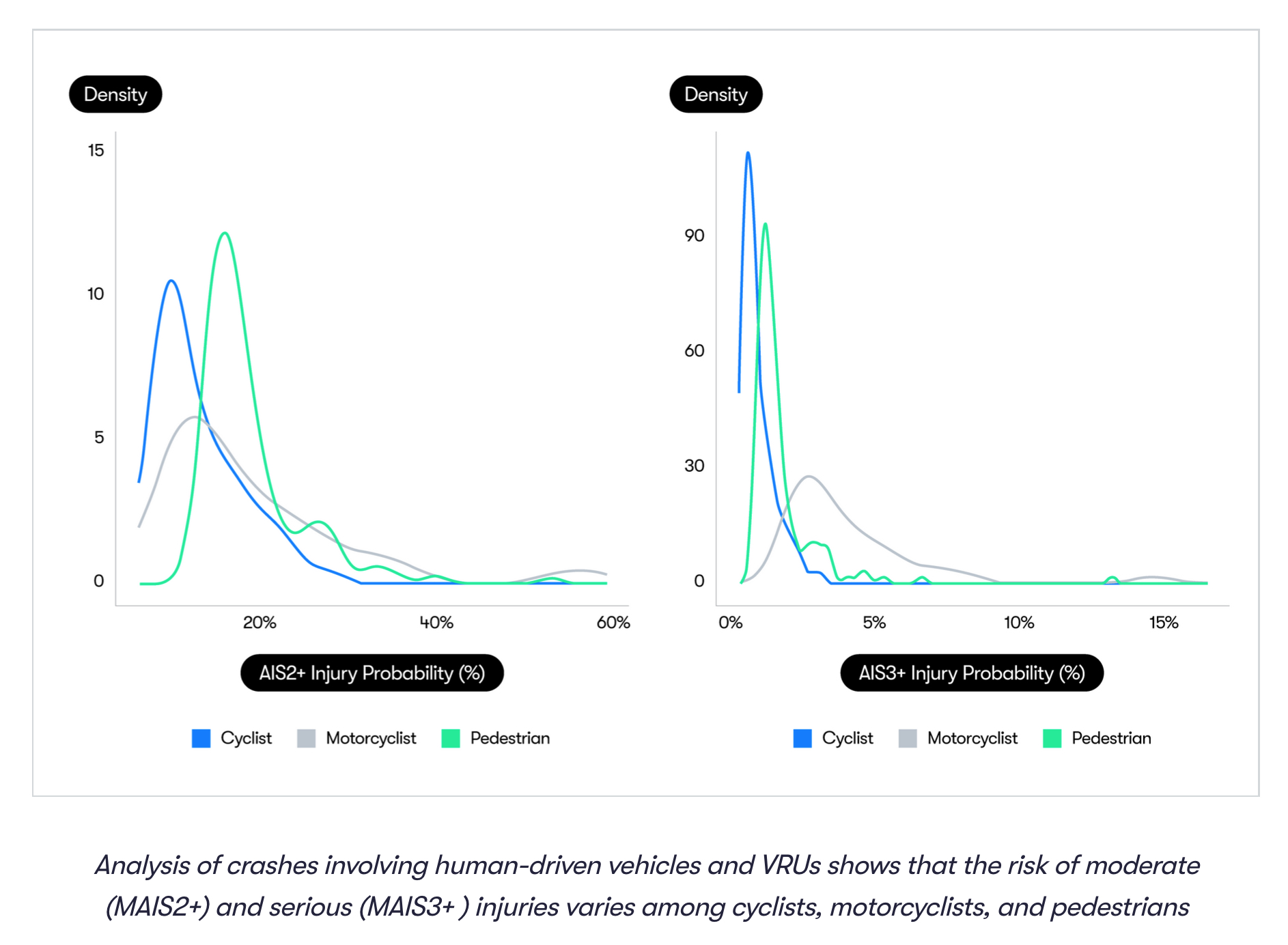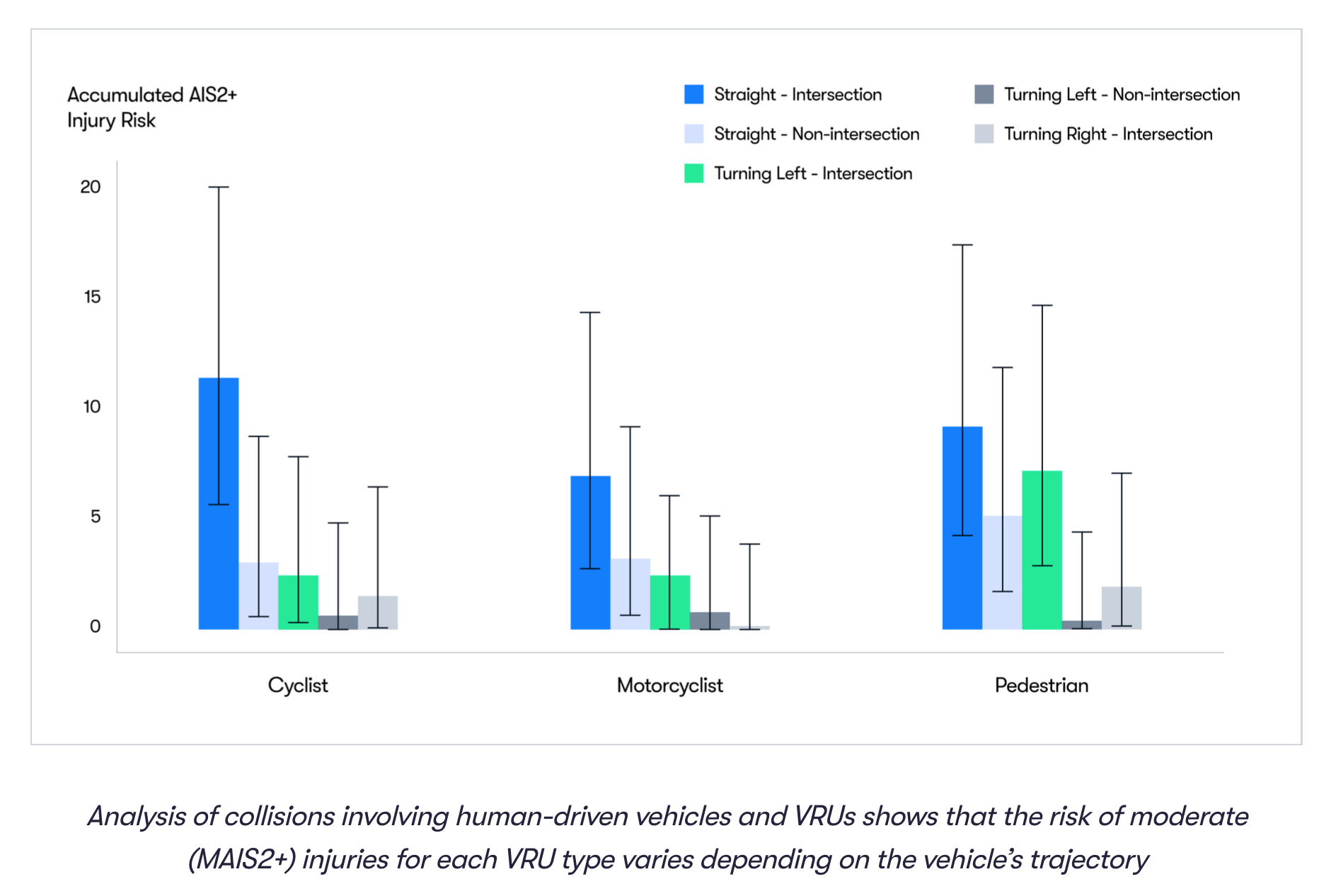Google’s driverless ride-hailing firm Waymo has revealed the newest in a string of AI research-related bulletins, this time sharing outcomes from a first-of-its-kind examine on collisions with weak street customers.
Waymo final week introduced EMMA, its end-to-end, multimodal analysis mannequin for autonomous driving, although it isn’t getting used commercially at this level. The corporate additionally went on to element its present strategy to AI in a separate press launch, noting its continued analysis into real-world fashions and AI coaching, an idea which will sound acquainted to those that have adopted Tesla’s Full Self-Driving (FSD) improvement.
On Monday, nevertheless, Waymo shared outcomes from a examine on Susceptible Street Customers (VRUs), wherein the corporate reconstructed tons of of collisions involving VRUs like pedestrians, cyclists, and motorcyclists. Waymo says that the analysis, as carried out in a partnership with Nexar, is the most important dataset of its form within the U.S., offering key insights into real-world crash eventualities.
The businesses analyzed sprint digital camera footage of 335 collisions involving VRUs throughout six U.S. cities, leveraging over 500 million miles of driving information from Nexar for the analysis. The partnership additionally labored with Waymo analysis accomplice VUFO, which contributed to the beneath fashions on collision harm threat.

Credit score: Waymo

Credit score: Waymo
In keeping with the Nationwide Freeway Site visitors Security Administration (NHTSA), there have been an estimated 7,522 pedestrians and 1,105 cyclists who misplaced their lives in visitors crashes in 2022, although Waymo says VRU collision information stays scarce. The corporate explains this by noting that a number of VRU-related incidents don’t get reported to authorities or insurance coverage corporations, whereas the U.S. and different main accident databases lack information on these explicit incidents.
“We’re excited to accomplice with Waymo on this cutting-edge analysis,” stated Henrik Liers, Managing Director of Waymo analysis accomplice VUFO. “Our widespread work addresses crucial limitations in current fashions and supplies a extra exact, interdisciplinary strategy to assessing harm threat for weak street customers. It is a important contribution in the direction of bettering street security.”
Tesla’s Full Self-Driving and end-to-end studying fashions
The latest developments from Waymo come as Common Motors’s (GM’s) Cruise, Amazon’s Zoox, and Tesla’s Supervised Full Self-Driving (FSD) goal to supply related robotaxi providers. Whereas Tesla doesn’t presently function a paid ride-hailing service as Waymo does, it unveiled the two-seat, steering wheel-free Cybercab robotaxi final month.
Apparently, Tesla’s FSD system has been touted by some as a extra scalable resolution, in no small half on account of its end-to-end system that trains on thousands and thousands of clips of real-time driving footage. One other issue is that FSD is accessible to any Tesla proprietor who purchases the software program, which means that its neural community stands to have a a lot wider potential analysis base than programs like Waymo—at the very least till providers scale up considerably.
Tesla’s Cybercab isn’t anticipated to enter manufacturing till 2026, although FSD Supervised will definitely acquire a considerable quantity of knowledge within the meantime. As of Tesla’s Q3 earnings name, the corporate has over 2 billion cumulative miles of knowledge from FSD Supervised customers, after it surpassed a milestone of 1.3 billion miles in April.
Tesla FSD V13 to implement options required for unsupervised driving: exec
What are your ideas? Let me know at [email protected], discover me on X at @zacharyvisconti, or ship us suggestions at [email protected].
Want equipment to your Tesla? Take a look at the Teslarati Market:



